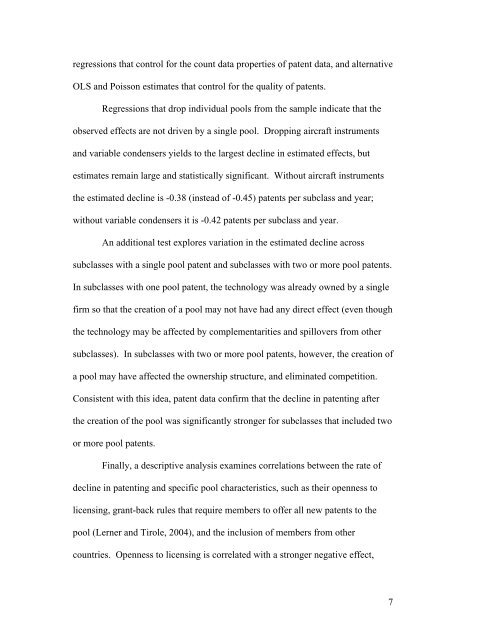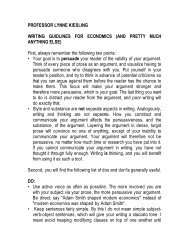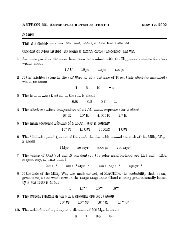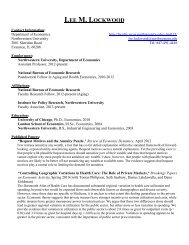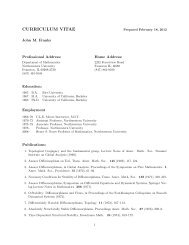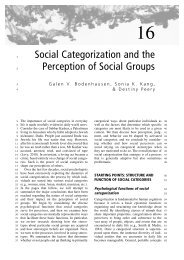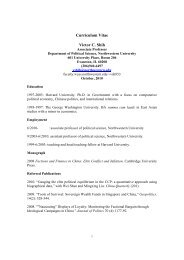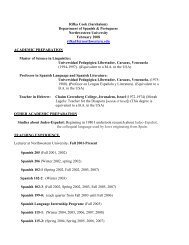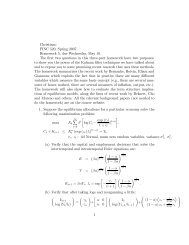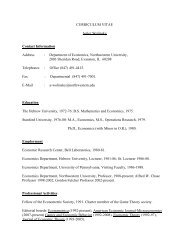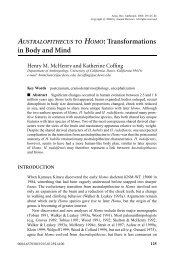DO PATENT POOLS ENCOURAGE INNOVATION? EVIDENCE ...
DO PATENT POOLS ENCOURAGE INNOVATION? EVIDENCE ...
DO PATENT POOLS ENCOURAGE INNOVATION? EVIDENCE ...
You also want an ePaper? Increase the reach of your titles
YUMPU automatically turns print PDFs into web optimized ePapers that Google loves.
egressions that control for the count data properties of patent data, and alternative<br />
OLS and Poisson estimates that control for the quality of patents.<br />
Regressions that drop individual pools from the sample indicate that the<br />
observed effects are not driven by a single pool. Dropping aircraft instruments<br />
and variable condensers yields to the largest decline in estimated effects, but<br />
estimates remain large and statistically significant. Without aircraft instruments<br />
the estimated decline is -0.38 (instead of -0.45) patents per subclass and year;<br />
without variable condensers it is -0.42 patents per subclass and year.<br />
An additional test explores variation in the estimated decline across<br />
subclasses with a single pool patent and subclasses with two or more pool patents.<br />
In subclasses with one pool patent, the technology was already owned by a single<br />
firm so that the creation of a pool may not have had any direct effect (even though<br />
the technology may be affected by complementarities and spillovers from other<br />
subclasses). In subclasses with two or more pool patents, however, the creation of<br />
a pool may have affected the ownership structure, and eliminated competition.<br />
Consistent with this idea, patent data confirm that the decline in patenting after<br />
the creation of the pool was significantly stronger for subclasses that included two<br />
or more pool patents.<br />
Finally, a descriptive analysis examines correlations between the rate of<br />
decline in patenting and specific pool characteristics, such as their openness to<br />
licensing, grant-back rules that require members to offer all new patents to the<br />
pool (Lerner and Tirole, 2004), and the inclusion of members from other<br />
countries. Openness to licensing is correlated with a stronger negative effect,<br />
7


